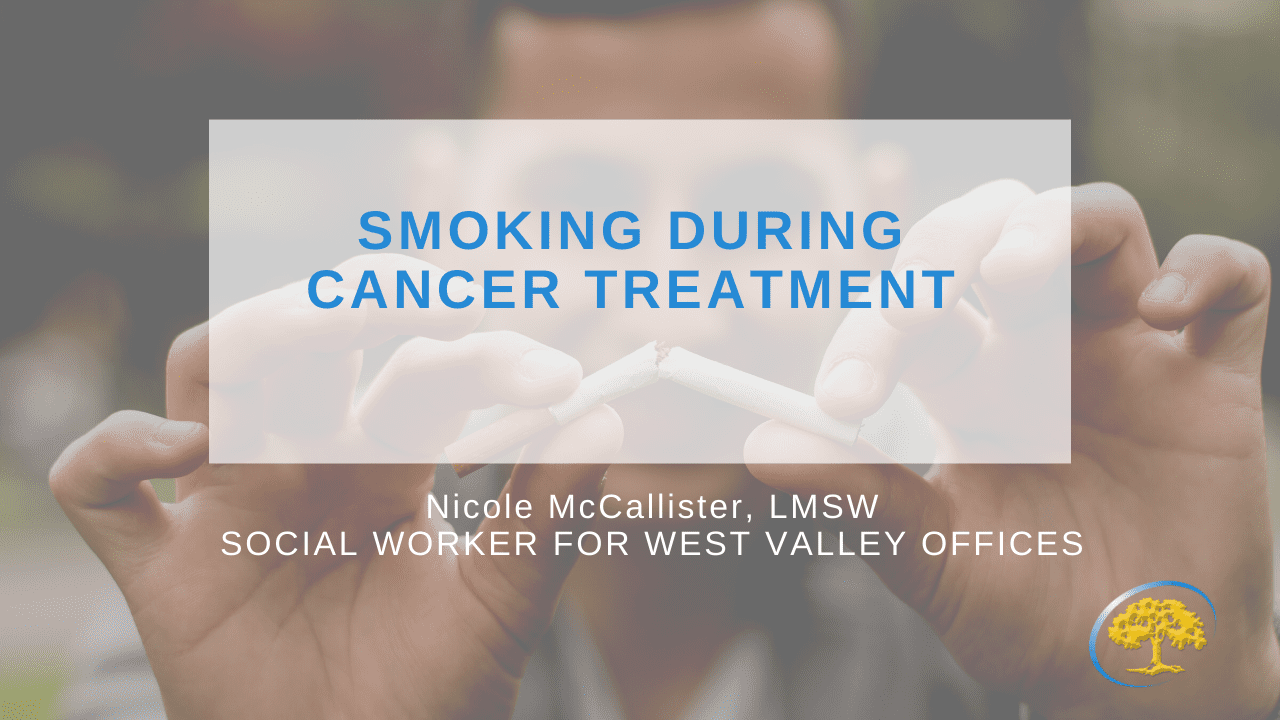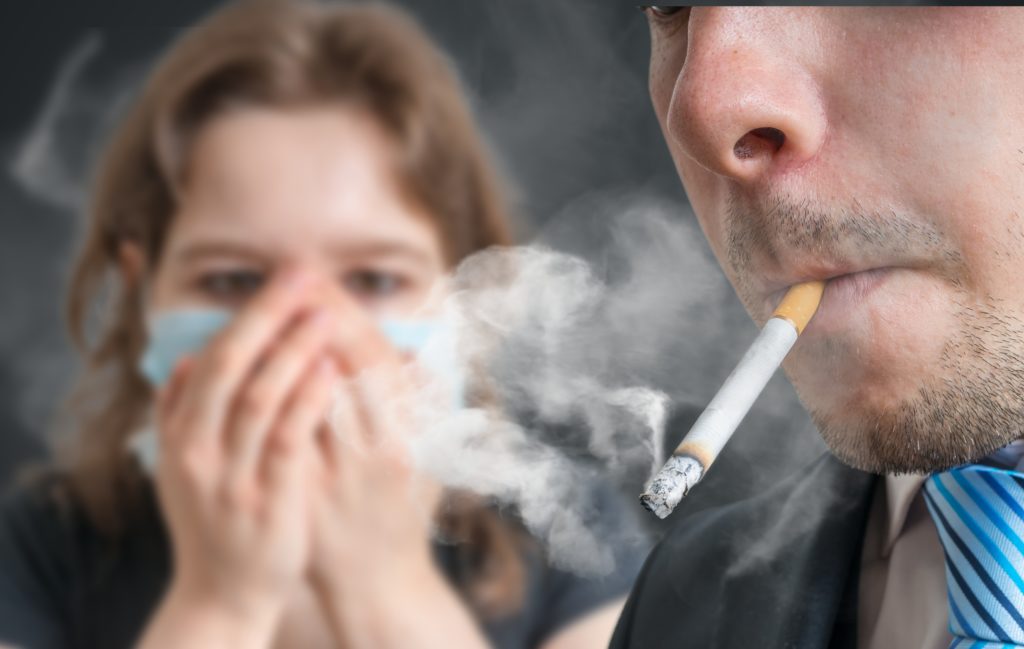
Posted 3 years ago
Stop Smoking During Cancer Treatment
November is Tobacco Awareness month and we want to take this opportunity to educate and support you on living a tobacco free lifestyle, especially if you or a loved one is undergoing cancer treatments.
Smoking cigarettes and use of tobacco is harmful for everyone. Cigarette smoking remains the leading cause of preventable disease, disability, and death in the US. More than 480,000 deaths annually can be connected to tobacco use. The use of tobacco products is even more of a threat to patients undergoing cancer treatments.
Surveys and research have been done with patients who continue to smoke cigarettes and use nicotine during cancer treatment. Although experiencing fatigue, pain, hair loss and nausea are normal side effects for patients participating in chemotherapy and other cancer treatments, the research indicates smokers experience these side effects more intensely than non-smokers.
How does smoking negatively affect your body?
- Circulation through blood vessels weakens and slows
- Body’s ability to heal from wounds is impaired
- Immune system can be weakened
- Cardiovascular health declines
- Smoking may cause hypoxia, a lack of oxygen in the body or part of the body. Hypoxia may produce poorer outcomes from radiation therapy and immunotherapy
- How your body processes chemotherapy drugs to make them less effective
- Smoking causes many types of cancers including lung, larynx (voice box), mouth, esophagus, throat, bladder, kidney, liver, stomach, pancreas, colon and rectum, and cervix, as well as acute myeloid leukemia
- If you have had or will receive radiation therapy, the combination of smoking and radiation therapy dramatically increases your lung cancer risk.
Quitting smoking reduces the likelihood that cancer will return to your body. Many people are not successful in their first attempt to quit smoking. That is okay! The important thing is to keep trying, use supports to be successful, and remember why stopping the use of tobacco is so important. In just a short amount a time after quitting smoking, positive physical changes can occur. Check out these quick facts.
| 20 minutes after quitting… | Blood pressure and heart rate return to normal |
| 8 hours… | Oxygen levels return to normal. Carbon monoxide levels are reduced by half |
| 24 hours… | Carbon monoxide is eliminated from the body. Lungs begin to eliminate mucus and debris |
| 48 hours… | Nicotine is eliminated from the body. Sense of taste and smell begin to improve |
| 72 hours… | Breathing is easier, bronchial tubes relax, energy levels rise |
| 2-12 weeks… | Circulation improves |
| 3-9 months… | Lung function improves by 10%. Coughing and wheezing are reduced |
| 1 year | Heart attack risk is decreased by 50% |
Need more reasons to quit?
- Quitting smoking cuts cardiovascular risks. Just 1 year after quitting smoking, your risk for a heart attack drops sharply
- Within 2 to 5 years after quitting smoking, your risk for stroke may reduce to about that of a nonsmoker’s
- If you quit smoking, your risks for cancers of the mouth, throat, esophagus, and bladder drop by half within 5 years
- Ten years after you quit smoking, your risk for dying from lung cancer drops by half
Although some people can quit “cold turkey”, which means to stop immediately, others may need to develop a plan to quit. Set a date for a goal of no smoking within two weeks. Tell your family, friends, coworkers and people around you about your desire to quit. Ask them to support you in this decision. Having those around you know and support you can help keep you on track with your goals and accountable for your choices. Anticipate challenges including nicotine withdrawal symptoms. Remove all tobacco products from the home and work environments so that you no longer have easy access to them. Consider counseling or telephonic support to address stress and urges that may arise.
Be open with your medical team about your smoking. We cannot help you solve a problem we do not know about. Your doctors and Social Workers at Ironwood are able to offer smoking cessation, education to begin the process the successfully quitting tobacco use. Feel free to contact Social Work at 480-314-6660.

